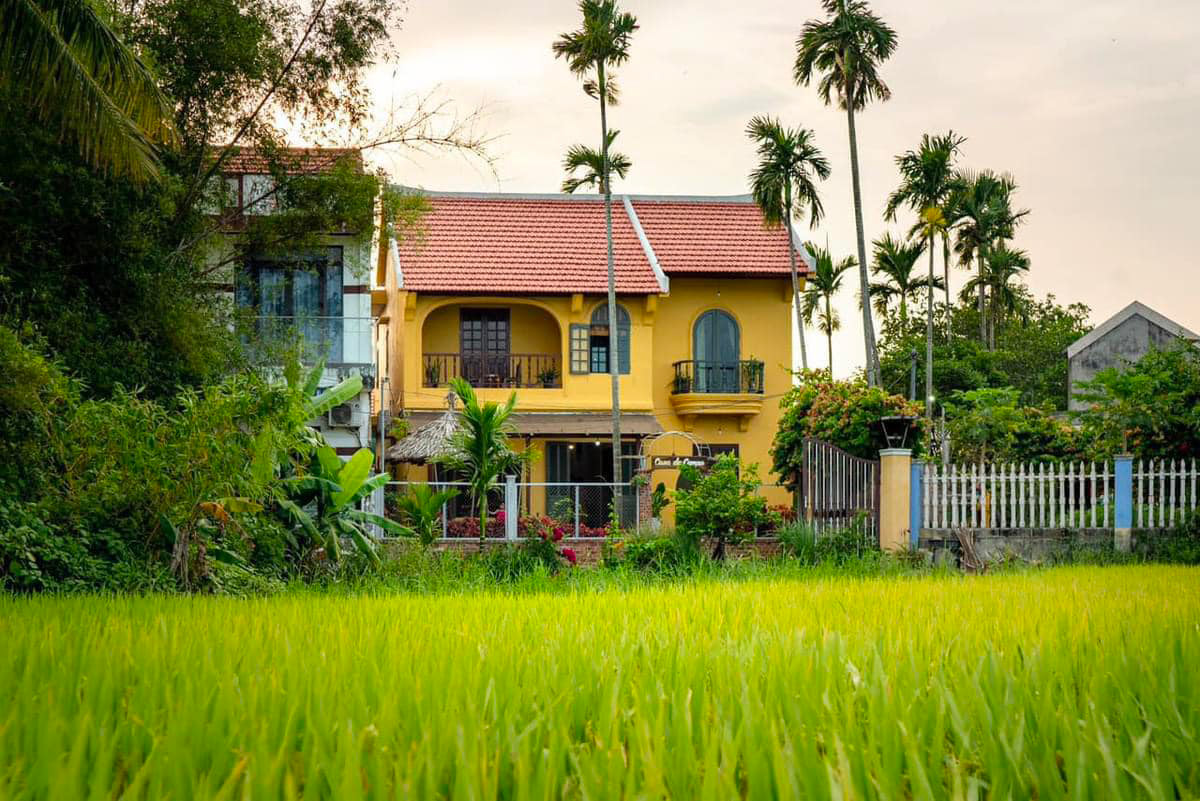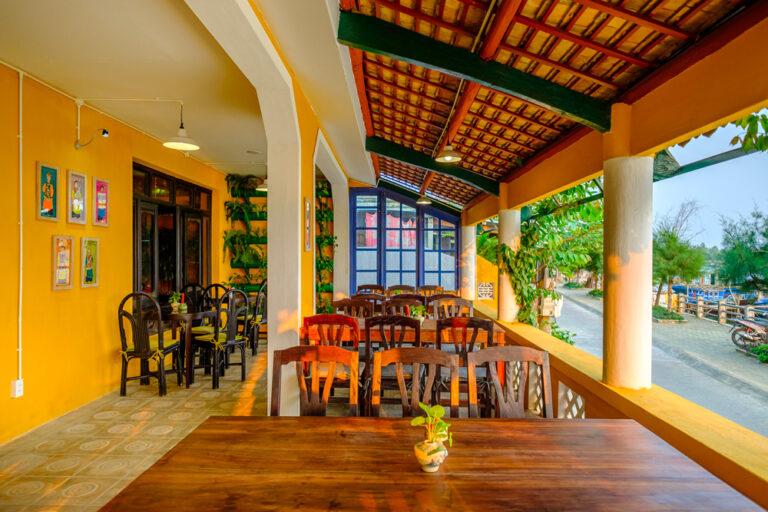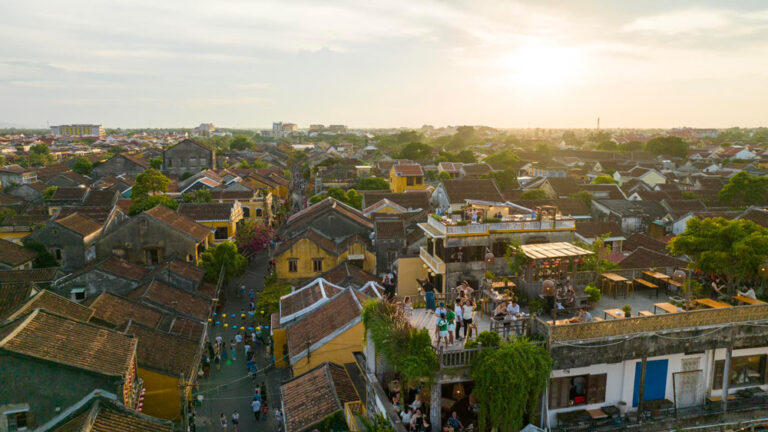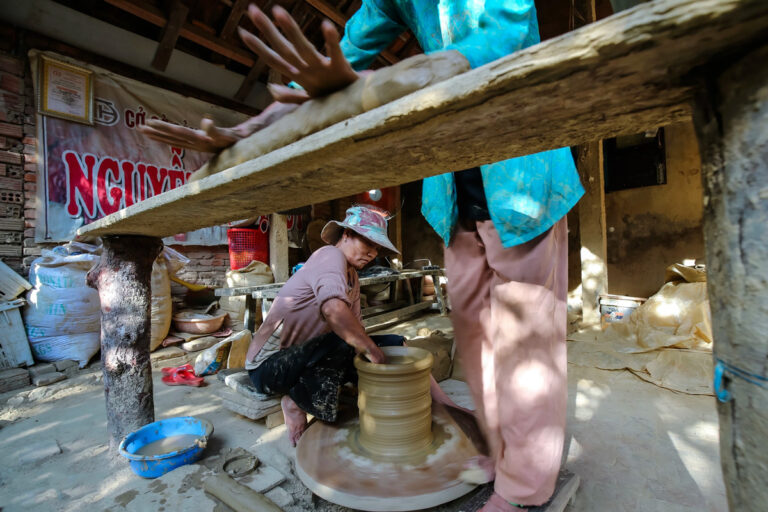Renting a House in Hoi An | What You Really Need to Know
I often get the same question: “Is it easy to rent a house in Hoi An?” The answer is both yes and no. Finding a house is easy – there are plenty available. But finding the right house, at the right price, in a neighborhood that really suits you, is a different story.
I’m not here to sell you a dream or give you the typical clichés about the charming little house by the rice fields with perfect sunsets every evening. That’s Instagram. In reality, renting in Hoi An is mostly about knowing where to look, how to negotiate, and how to avoid the common traps that many newcomers fall into.
In this article, I’ll simply share what I’ve learned from searching, visiting, renting, and sometimes making mistakes. No theory – just practical advice based on my own experience.
Best Areas to Rent a House in Hoi An
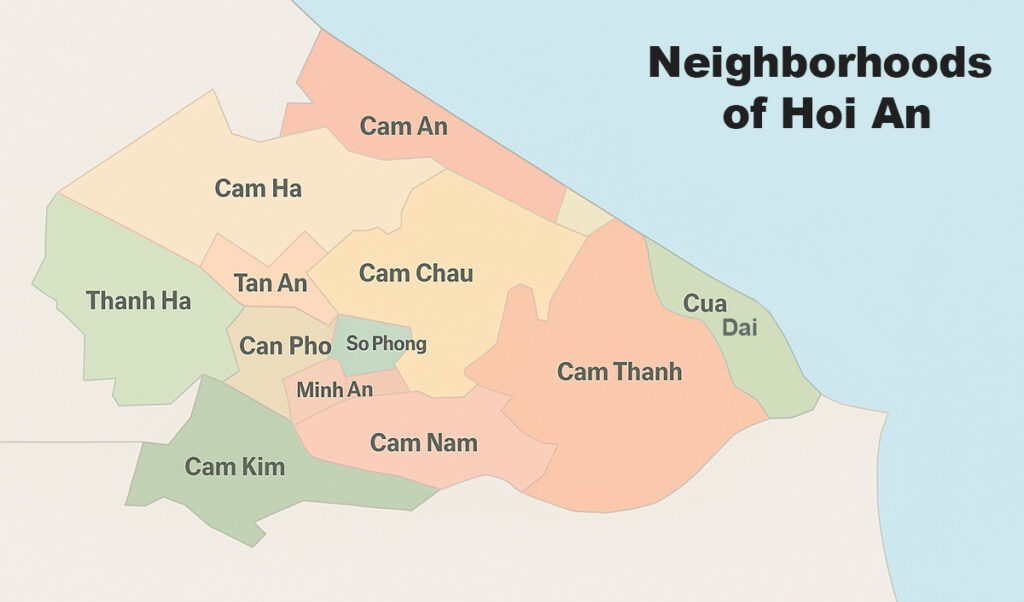
Before you jump in, you need to figure out where you actually want to live. Hoi An isn’t just the old tourist center – it’s a patchwork of very different neighborhoods.
If you want to be close to the action, with restaurants, cafés, and a bit of noise, aim for the city center (Minh An) or Cam Pho. I lived there when I first arrived – it’s convenient, sure, but between the honking and the tourist groups passing under your window at 7 AM, it gets old pretty fast.
If you’re looking for something quieter and greener, check out Cam Thanh, Cam Chau, or Cam Ha. These areas are popular among expats, close to the rice fields, and just 5-10 minutes by scooter from the center. Perfect if you want some space and want to avoid the crowds.
Do you prefer being near the sea? Then go for An Bang (Cam An Ward) or Tan Thanh. It’s great if you dream of grabbing a coffee and walking to the beach in the morning. That said, rents are usually higher, and it’s still pretty lively, especially during the high season.
My tip: before signing anything, get on a scooter and explore the areas that catch your eye. Do it at different times of the day, because what seems chill at 10 AM might turn into chaos by 6 PM.
Vietnam Visa: What You Need to Know Before Renting

If you want to rent a house in Hoi An, you’ll absolutely need a minimum 3-month visa. Landlords don’t rent houses to people who only have a 45-day tourist visa. You can apply for this visa either directly at the Vietnamese embassy in your home country.
With the 3-month visa, you’ll usually be able to extend it 2 or 3 times, allowing you to stay up to one year without leaving the country. However, be careful – the rules change often, so always double-check before making plans.
A Small Tip to Save You Some Trouble Later, several agencies recommend choosing Ho Chi Minh City as your entry point instead of Hanoi. Why? Simply because visa extensions there are often cheaper and easier to get.
Types of Houses You’ll Find in Hoi An

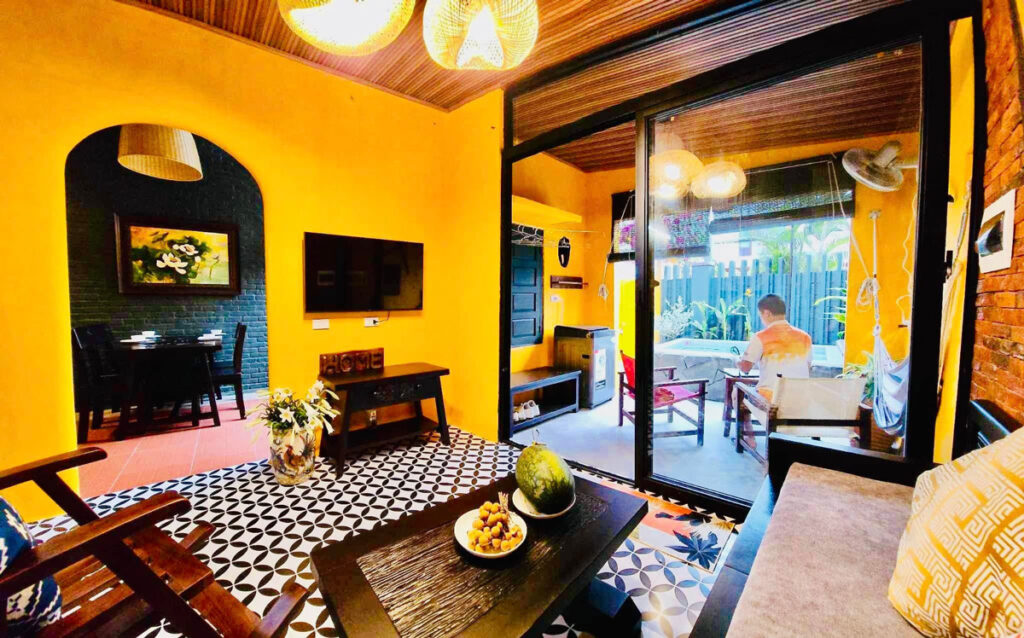
In Hoi An, you’ll find a bit of everything – and sometimes anything. From very simple local houses to expat-style villas with private pools, the choice is wide, but it really depends on what you’re looking for.
First, there are the traditional Vietnamese houses, usually compact, with one or two floors, a small patio, and sometimes a courtyard. They’re typical and charming, but often quite basic: minimal furniture, rustic bathrooms, and kitchens that feel more like survival mode. For some, it’s part of the adventure. For others, it gets tiring pretty quickly.
If you have a more comfortable budget, you’ll find modern houses or villas, often built specifically for expats. Think private pool, large windows, fully equipped kitchen, and sometimes even a nice little garden. But be careful – some of them look great in photos but are poorly finished or badly designed. You really need to visit in person before making up your mind.
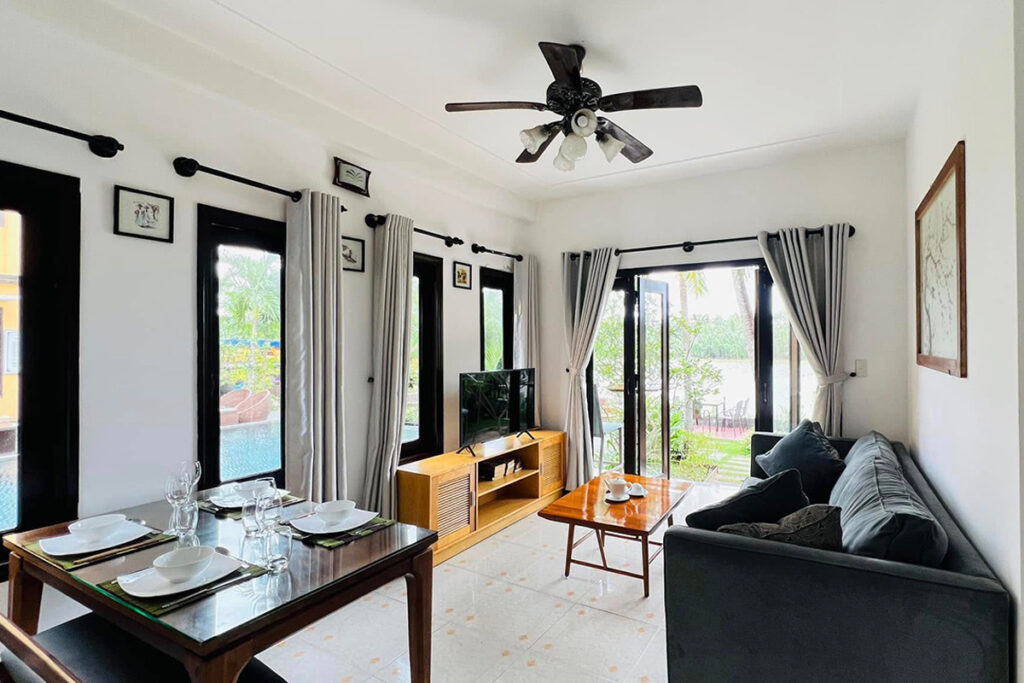
You’ll also come across a lot of so-called “hybrid houses” – a perfect mix between local charm and modern comfort, often renovated by owners who understand that expats want comfort without feeling like they live in a tourist resort.
One important note: Vietnamese housing standards are not the same as in Western countries. Don’t expect everything to be perfect. Even in villas, you’ll often find small issues: weird electrical outlets, doors that don’t close properly, or sloppy finishing touches. It’s part of the charm… or not, depending on how you see it.
How to Find a House in Hoi An

Let me be straight with you: forget about regular real estate websites or fancy-looking agencies. In Hoi An, everything happens through Facebook and word of mouth.
Facebook groups like Hoi An Rental Property or Houses & Apartments for Rent are your best friends. New listings pop up every day. But you need to be quick. Good deals sometimes disappear within a few hours. If you spot a house you like, contact immediately, visit, and don’t wait too long to make a decision.
You can also go through a local agency. There are several that speak English. Some are reliable and know the market well, like Nha Toi or Jackie Chiem, others less so. Keep in mind that agencies often charge one month’s rent as commission. Personally, I think it’s worth it if you’re short on time or still abroad, but if you’re already in Hoi An, it’s fairly easy to find a house on your own.
My favorite method is still scooter scouting. Just ride around the neighborhoods you like, keep your eyes open, and you’ll often see “House for Rent” signs with a local phone number. That’s your chance to call or text (basic English is fine) and schedule a visit.
Watch out for a few common traps:
- Some houses are advertised with photos from 5 years ago… and reality may look very different today.
- Also, beware of the “expat price”. Some landlords won’t hesitate to raise the price when they see you’re a foreigner.
My advice: always ask to see several houses, compare, and negotiate. Here, it’s part of the normal process and nobody will be offended.
How Much Does It Cost to Rent a House in Hoi An?
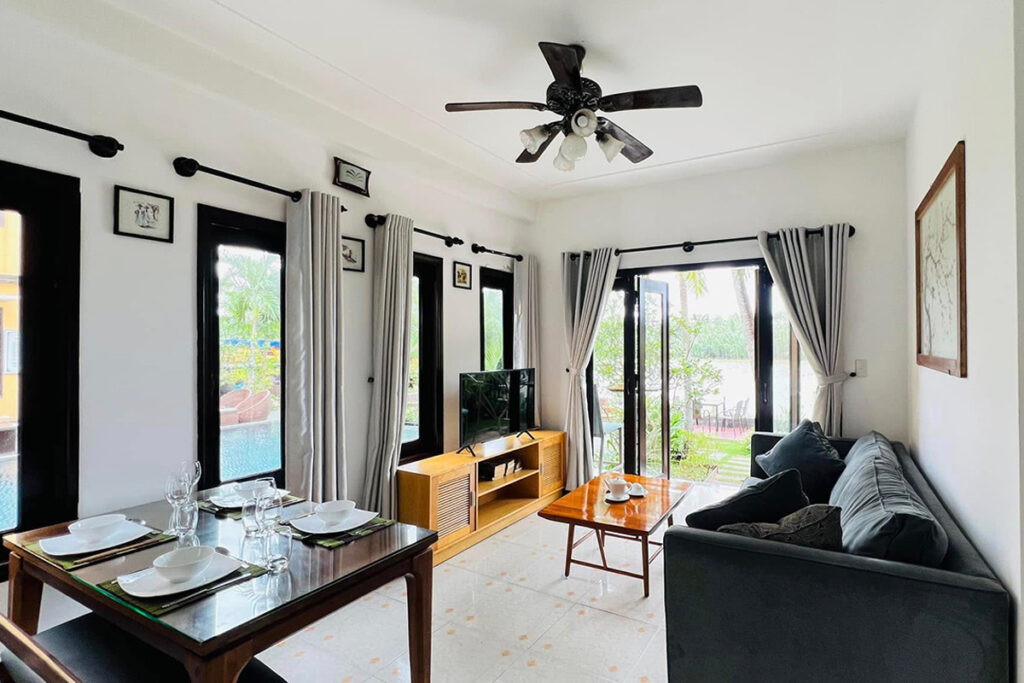
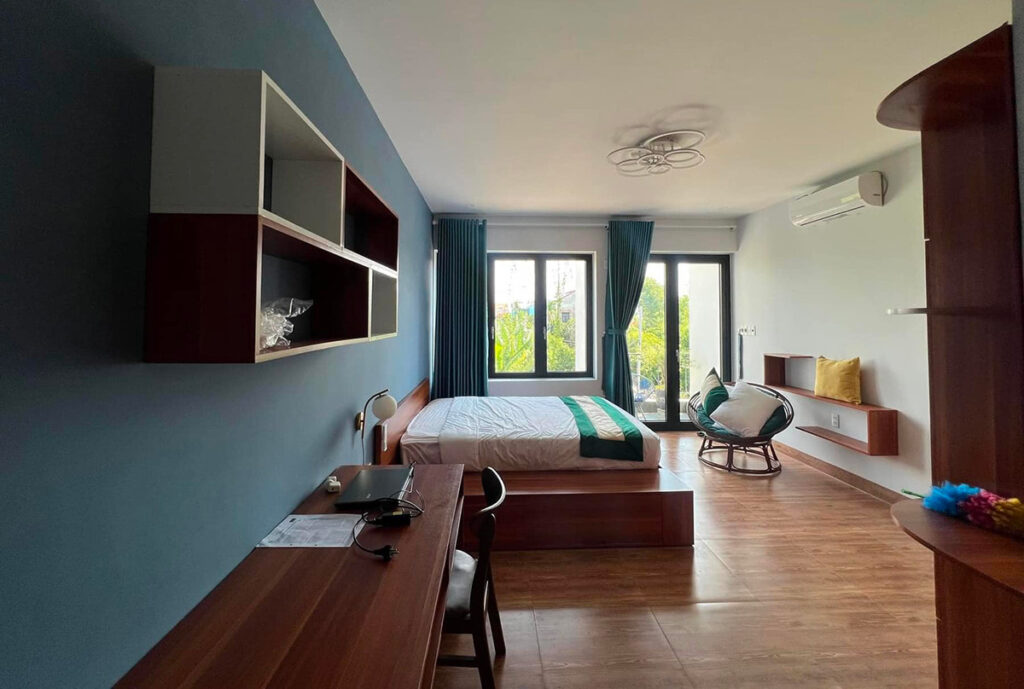
This is probably the question I get asked the most: How much does it cost to rent a house in Hoi An? The short answer is: it depends on the location, the type of house, and – most importantly – your negotiation skills. Prices have definitely gone up in recent years.
Roughly speaking, for a simple, traditional house with 1 or 2 bedrooms or a nicely designed apartment not too far from the center, expect to pay between 8 to 12 million VND per month (about 300 to 450 euros). And yes, you can still find some hidden gems around 400€.
If you’re aiming for a more modern house or one located in a popular area like An Bang or Cam Thanh, rents easily climb to 15 to 25 million VND (about 550 to 900 euros), or even more if you want something fancy with a private pool.
Of course, you’ll also see listings at 30 million VND and up. But honestly, at that price, you’re often paying more for the idea than the actual value – unless it’s a really large villa or a property designed for short-term rentals.
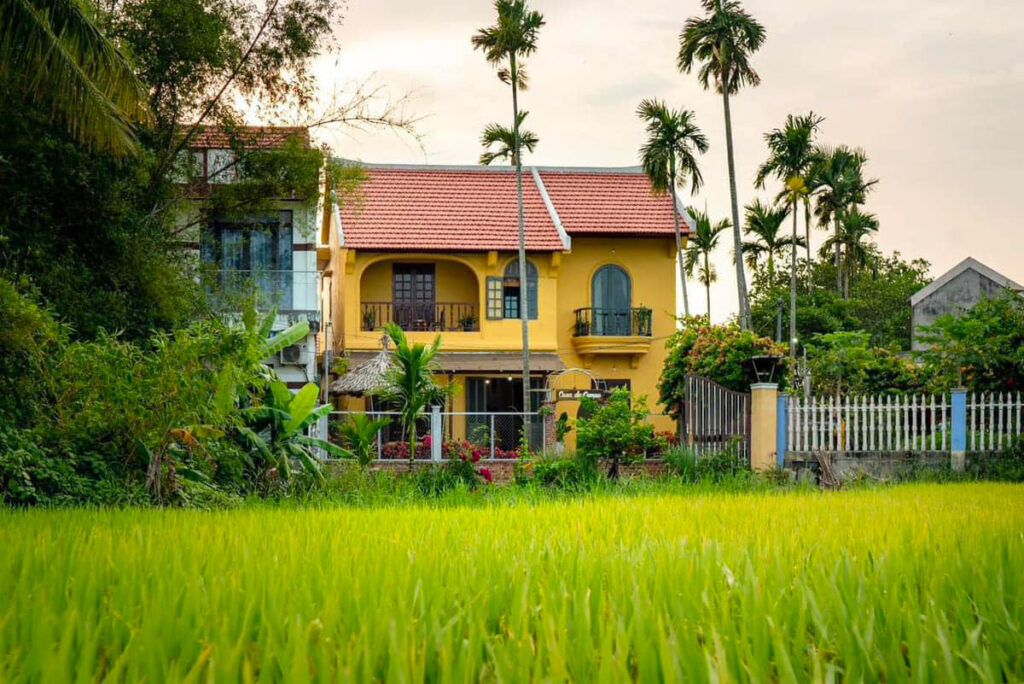
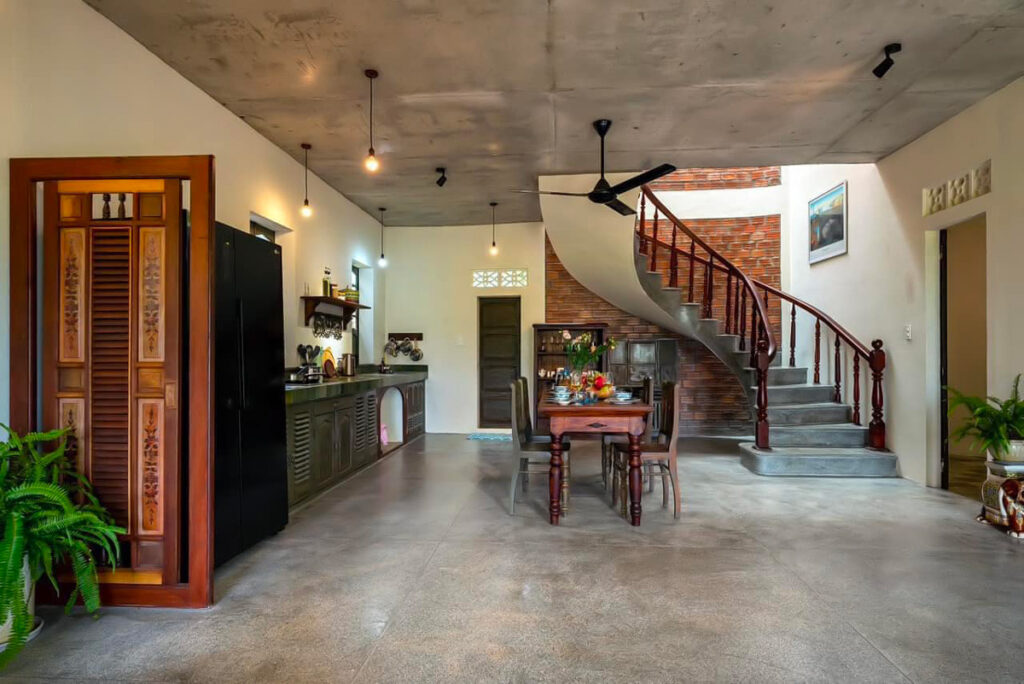
A few important things to keep in mind:
Rents are rarely fixed. The listed price is usually just a starting point. Not negotiating is almost seen as disrespectful here. With a bit of tact, you can easily get 10 to 20% off the initial price.
Also, always ask what’s included in the rent. Some landlords include water, Wi-Fi, and sometimes even garden or pool maintenance. Others don’t. Be clear from the start to avoid surprises.
One last tip: most houses here come furnished, but that can mean anything from “just a bed and a table” to “fully equipped kitchen, washing machine, air conditioning in every room.” Take the time to check carefully before signing.
Rental Contracts and Negotiation
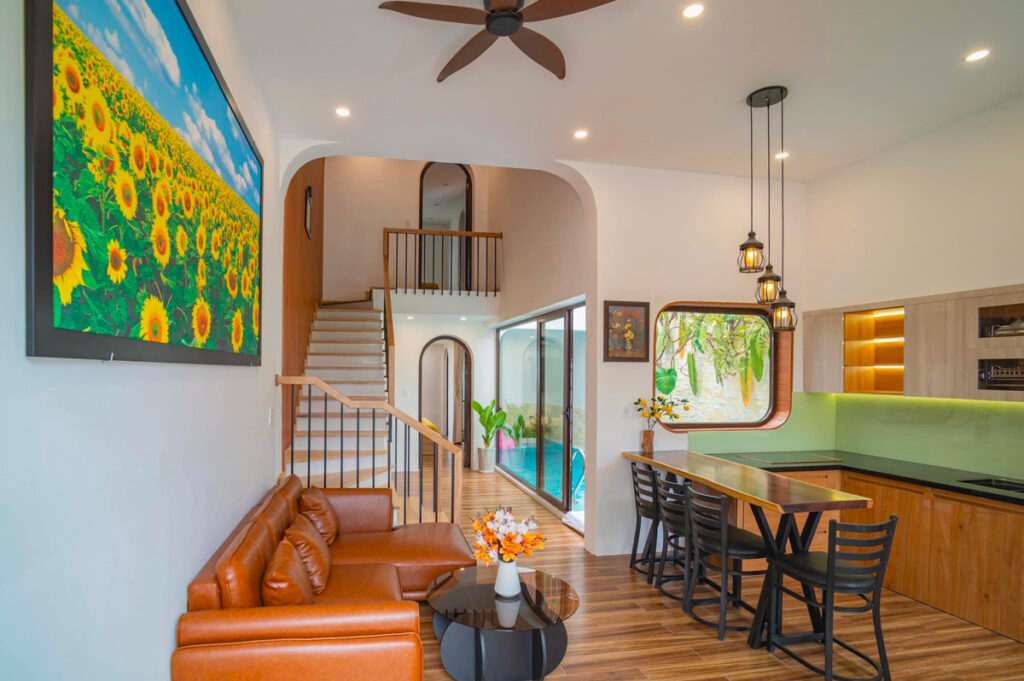
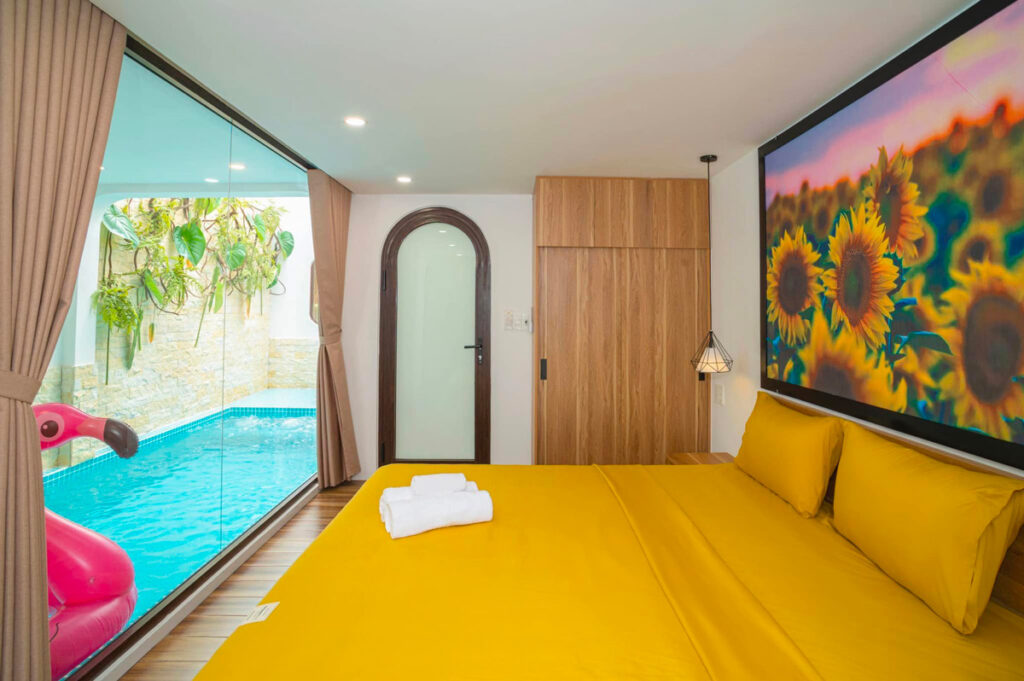
Renting a house in Hoi An is often done in a much more casual way than what you might be used to in France. Many landlords rely on trust or even just a verbal agreement. Personally, I strongly recommend having a written contract, even a simple one, to avoid misunderstandings.
The contract should clearly state:
- The rent amount and the currency (VND or sometimes USD – it still happens).
- The rental period, usually 6 months or 1 year, renewable.
- What’s included (Wi-Fi, water, garden maintenance, garbage collection, pool, etc.).
- The amount of the security deposit (usually equivalent to one month’s rent). Be careful, some will try to ask for 2 or even 3 months. Don’t accept too easily.
The most important thing here: don’t be shy about negotiating.
It’s normal – actually, it’s expected. The listed price is rarely final. Some expats skip the negotiation and end up paying 20% more for a whole year. With a smile and a bit of patience, you can often get a better deal or a few extras (an extra piece of furniture, air conditioning installed, a fresh coat of paint before moving in).
If the landlord doesn’t speak English well, you’ll often meet an agent or a family member who acts as an intermediary. Don’t worry, it’s very common.
Electricity, Water, and Internet
Once you’ve settled in, there are a few things you should know to avoid unpleasant surprises.
First, when it comes to electricity and water, it’s at your expense in 90% of cases. The bills aren’t very high, but it depends on your usage, especially air conditioning or a pool. During the hot season, if you leave the AC running all day, the bill adds up quickly. On average, expect around 500,000 to 1,500,000 VND per month (about 20 to 60 euros) for electricity. Water is cheap, usually under 100,000 VND (3-4 euros).
Wi-Fi is usually included or already set up by the landlord, but sometimes you’ll need to arrange it yourself. Providers like VNPT, Viettel, or FPT cover the area well, and it’s affordable. Don’t expect ultra-fast fiber unless you’re in certain neighborhoods, but for Netflix, YouTube, or remote work, it does the job.
As for neighbors, you’ll often find a mix of Vietnamese families and expats. Most of the time, it’s pretty peaceful. But keep in mind that Vietnamese people often live outdoors: family meals in the yard, spontaneous karaoke sessions, kids playing in the streets. Personally, I find it quite charming, but it might take you by surprise at first.
On the practical side, you can have everything delivered: drinking water, gas, groceries, food. For small repairs, there’s always someone in the neighborhood who knows “a cousin, an uncle, or a friend” who can help you out – often for next to nothing.
Finally, regarding safety, no need to be paranoid. Hoi An is a very safe city. That said, like anywhere, lock your house, especially if you’re away for a few days. If you have a motorbike, it’s better to park it inside the courtyard overnight if possible.
My Opinion
Renting a house in Hoi An isn’t difficult once you understand how things work. If you take the time to choose your neighborhood carefully, visit several houses, negotiate without rushing, and pay attention to small details, you’ll avoid 90% of the common problems.
For me, living here is a great experience, and finding the right house plays a big part. You don’t need a palace – just a place where you feel good and that fits your daily life. With a bit of common sense and a few local tips, you’ll be fine.
One last piece of advice: don’t overthink it. Hoi An is a small town – everything always works out, often over a coffee or a bowl of cao lầu.

